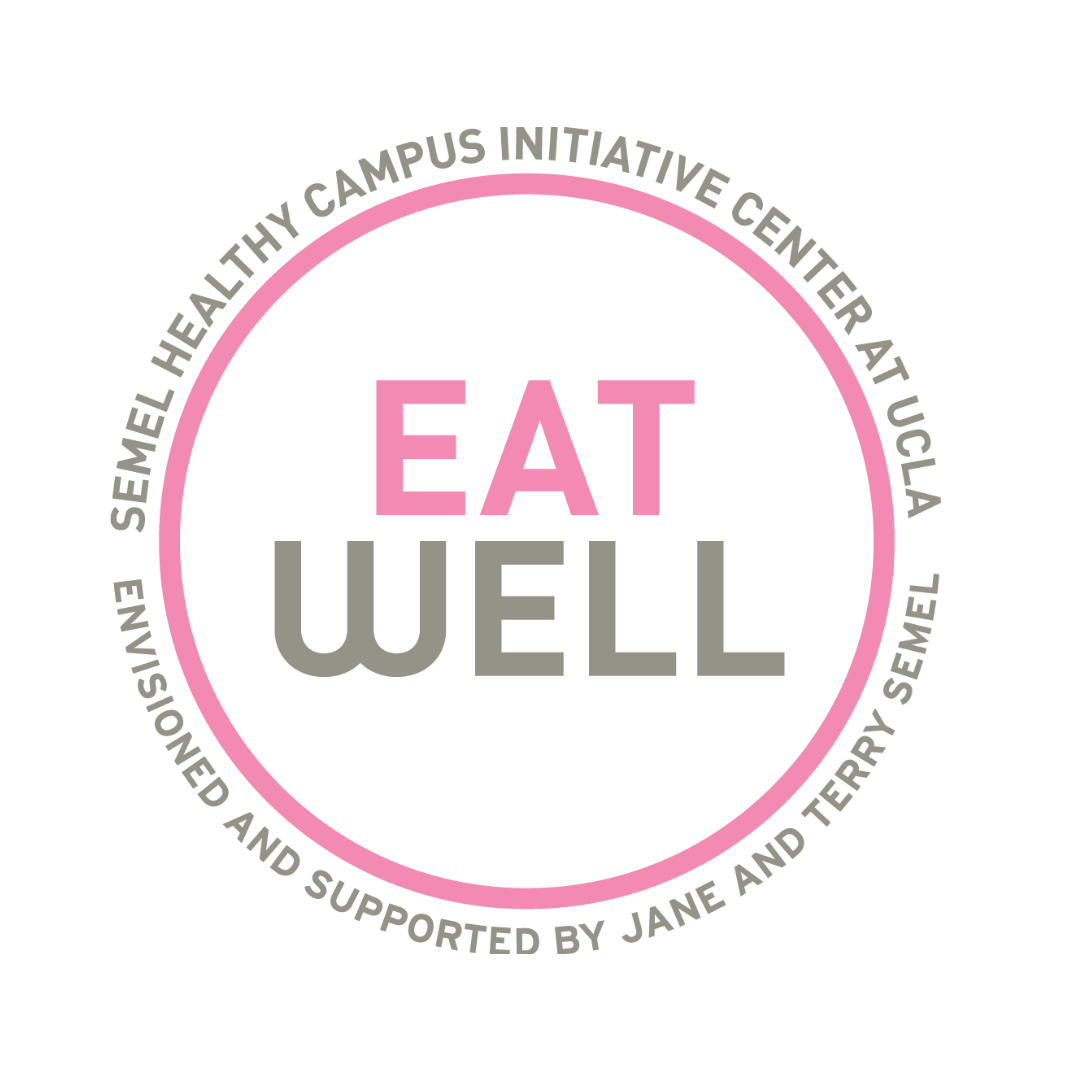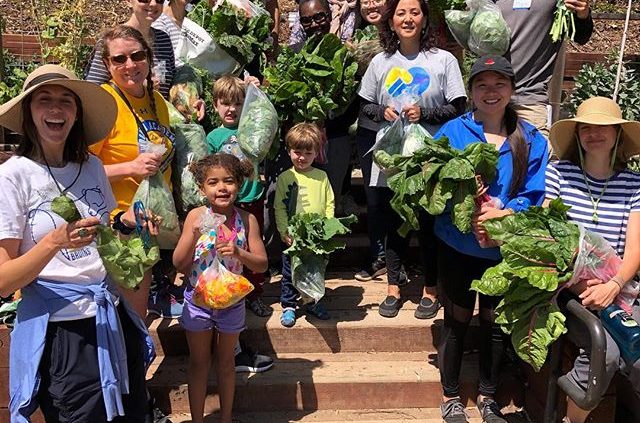A chat with the garden coordinators on the Urban Gardening Certificate Program
To better understanding the motivation behind the Urban Gardening Certificate Program, I spoke with some of the key leaders behind the program. Mark Biedlingmaier and Ana Laura Paiva, two of the five Garden Oversight Committee members who oversee management of the jane b semel HCI Community Garden, each spoke with me about the impact that urban gardening has had on them, and the future they envision for it.

Volunteer work day at the jane b semel HCI Community Garden.
Q: What was your experience with the start of the garden at UCLA?
Mark: “When I transferred, I started plugging into different social spaces, and since I had a lot of gardening and farm experience, I joined Dig. It was Jane Semel’s, Founder and Visionary of the Semel Healthy Campus Initiative Center at UCLA, idea to create a garden on top of the amphitheater. Two GFI (Global Food Initiative) Fellows, Jacob Garson and Daniel Shen, were involved in jane b semel HCI Community Garden, and when they graduated, I picked up where they left off. Ian Davies, Steven Eggert, Cloudy Xu, Dr. Wendy Slusser, the Semels, One Gun Ranch, UCLA Recreation, Mick DeLuca, campus architect Jeff Averill and many other passionate individuals each played enormous roles in the development of the garden.”
(Special thanks to all members involved with the garden in its early days can be found at the bottom of this page.)
Q: Why do you think we need and enjoy gardening to the level that we do?
Ana Laura: “Gardening is a return to our roots, and growing our own food is an encouragement to take better care of ourselves. Taking care of our environment at a local scale inspires us to take care of it at a global scale.”
Mark: “I got into gardening because it taught me to be more internally reflective on my health and how I relate to people. Looking after life and having that attention on something other than yourself gives a larger perspective.”
Q: What makes the urban gardening community so unique?
Ana Laura: “I’ve met a lot of inspiring people through gardening. It’s a very welcoming environment; you’re coming into a space where it doesn’t matter whether you have tremendous experience or are literally coming into a garden for the first time. There’s always something you can help out with or something new to explore. Then, the guerilla gardening movement and WWOOFing create a greater gardening network of passionate people.”
Q: What do you see as the future of urban gardening? What role might the HCI garden play in that?
Mark: “Currently, the jane b semel HCI community is in its infancy. We’ve been asking ourselves, ‘what is our exact niche?’ We want to engage more with the campus faculty and staff, not just the students. Personally, I’d like to see more people growing food, edible landscapes, and dining halls pulling more produce from operations on campus. I’d like to find ways in which we can further integrate our campus growing efforts with food security and basic needs-related projects.
In general, resources are only becoming more finite and the people who are consuming those resources are expanding. The way we approach our daily lives has to be thought about more critically and urban gardening is an excellent way to create more balance in our food systems. UCLA as a public research institution can play a large role in shaping not only the urban gardening movement but the culture and policy around it. LA, as a megacity, can serve as an experimental playground for that.”
Q: How can people take their experiences at the garden into the rest of their everyday lives?
Ana Laura: “You can join other community gardens you may know of, or try container gardening at home. I see gardening and growing your own food as a very grounding process. There’s an interesting study published that shows that there are antidepressants in the soil and many other benefits of getting your hands in the dirt. The amount of care that it takes for our plants, flowers, grains, herbs, broccoli, beans, tomatoes, or watermelons to grow teaches us what it takes to take care of ourselves, and our communities. The best part in all of this is sharing and enjoying our experiences in the garden, and the wonderful food!”
(The study on antidepressants in the soil that Ana Laura is referring to was published in 2007, and can be found here. An excellent article detailing the findings of the study can be found here.)
After completing the program, participants are encouraged to continue to come out to future workshops covering new topics as well as crowd favorites. Ana Laura offers other possible next steps after completing the program: “You can find volunteer opportunities at the Veterans’ Garden, with Ron Finley, Guerilla Gardener in LA, with Food Forward, which donates surplus produce to hunger relief agencies, or with the Seed Library of Los Angeles. You can also always come back to volunteer at our garden!”
To learn more about the jane b semel HCI Community Garden:
Facebook: https://www.facebook.com/groups/amphitheatergarden
Instagram: @HCIgardens
Email: hcigardens@ucla.edu
Sign up for the mailing list here! https://ucla.us18.list-manage.com/subscribe?u=23cc009df9eb0fd1d338f2b6d&id=8445a6df09
Patience Olsen is an undergraduate student at UCLA majoring in Civil Engineering. In addition to blogging for the EatWell Pod, she volunteers at the Mildred E. Mathias Botanical Garden on campus, and is a member of the ASCE Environmental Design project.



